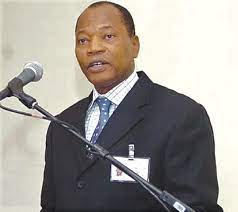
Dr Chambas calls for robust approach to deal with terrorism
The AU High Representative of Silencing the Gun, Dr Mohamed Ibn Chambas, has called for a more robust approach to effectively deal with violent extremism and terrorism in West Africa and the Sahel regions.
He said it had become increasingly evident that the old model of peacekeeping was no longer fit for purpose with regard to the contemporary nature of threats facing the
sub-regions.
“Terrorists have become more resilient than expected, 20 years after the adoption of the African continental and sub-regional mechanisms for peace, security, democracy and governance.
“The time is now for review of such protocols to build effective instruments for early action,” the AU Representative added.
Dr Chambas was addressing a two-day peacebuilding regional conference organised by the West Africa Network for Peacebuilding (WANEP), under a Research and Action For Peace (REcAP) Network project in Accra yesterday.
The REcAP Network project is a consortium of WANEP, the Danish Refugee Council (DRC) and the Stockholm International Peace Research Institute (SIPRI), with funding from the EU.
They work towards the prevention of conflicts and violent extremism in West Africa and the lake Chad Basin.
The conference is on the theme: “Unifying for stability: Addressing violent extremism amidst political uncertainties In West Africa and lake Chad Basin.”
Participants who include political scientists, governance experts, security specialists and policymakers will analyse and raise thought-provoking issues affecting peace and stability in the regions, while making recommendations through the exchange of information, experiences and good practices towards the prevention and countering of violent extremism.
Job creation
Dr Chambas said poverty and underdevelopment continued to fuel instability and conflicts in the regions and, therefore, stressed the need for reforms to ensure that countries processed their raw materials to create more jobs and wealth for the accelerated development of their respective nations.
“The question as to who owns our natural resources has become pertinent in the face of growing inequalities at international and national levels,” he added.
Dr Chambas also urged external powers to eschew the tendency of wanting regime change, saying that the current crisis in the Sahel was traceable in many regards to the instability in Libya.
Objectives
The Deputy Executive Director of WANEP, Levinia Addae-Mensah, said the conference would discuss the myriad of problems in relation to violent extremism, political instability, seeming retrogression of democratic processes in some parts of the region and their attendant consequences on particularly communities with already existing socio-economic challenges.
He said they would also brainstorm how to collectively respond to violent extremism in the context of the continuing weakening of existing counter-terrorism mechanisms in the sub-regions.
“My hope is that as we interrogate various initiatives and interventions around violent extremism, we will invest resources into developing new score cards that we can use to see tangibly what the efforts we are making in this field are,” Mrs Addae-Mensah added.
